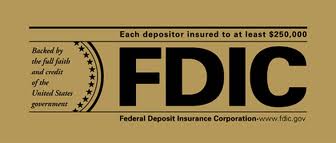Welcome to Banking Update, a roundup of articles and news from around the Internet. Let’s go right to the links.
The credit ratings of eight major banks were downgraded by Fitch. The eight global trading and universal banks (GTUB) that saw their credit ratings lowered were Bank of America, Morgan Stanley, Goldman Sachs, Barclays, Credit Suisse, BNP Paribas, Deutsche Bank and Societe Generale.
Fitch notes that it is not possible to assess the real risk of banks due to their complexity. “Fitch continues to be of the opinion that, however well-managed, the structural aspects of their funding, earnings, and leverage, predispose GTUBs to vulnerability to market sentiment and confidence, particularly during periods of exogenous financial stress. Furthermore, the complexity of their business models and exposure to fat tail risk make it more difficult to assess the size of loss that could emerge rapidly from unexpected events.”
Will the European Central Bank (ECB) ultimately risk inflation and its political independence by printing money? Many European nations face default if they are unable to sell new debt. The ECB is viewed by many as the only institution able to save Europe from its debt crisis.
The SEC finally goes after six former executives of Fannie Mae and Freddie Mac for making “materially false and misleading public statements.” Freddie Mac executives told investors that exposure to subprime mortgages was only $6 billion when it was actually $244 billion. Losses at Fannie and Freddie have cost the taxpayers more than $150 billion since they failed in 2008. The defendants immediately used the same defense as that employed by Washington Mutual executives, claiming that regulators were fully aware of all “material data”. and that they “had worked diligently” serving investors and homeowners.
Regulators used “secret enforcement tools” to limit risky bank lending with little positive results. Many regulatory actions taken against banks are kept secret by regulators to prevent bank runs by panicky depositors. Even when regulators were able to identify problems at banks, enforcement actions were late or inadequate to prevent subsequent bank failures.
Total banking failures are likely to decline by 42% to 90 banks for 2011. Since regulators usually close banks on Friday and the next two Fridays precede holiday weekends, today will be the last day of potential bank closings for 2011. Most of the banks closed during 2011 were relatively small. The biggest risk to the banking system remains imbedded in the largest banks which are so complex that the extent of risk cannot be quantified. (Update – regulators closed two more banks today, one in Arizona and one in Florida, bringing total banking failures to 92 for 2011.)
The FDIC is sponsoring a risk management conference in March to examine aspects of derivative trading by banks. This is another area where regulators are way behind the curve in preventing another financial crisis. The 7 largest banks in the U.S. had outstanding at December 2010 a mind boggling $213.9 trillion in risky derivative contracts. This is an area of bank speculation that sooner or later will blow up with major negative repercussions for both the financial system and the economy.

It is the Finantial Axel of the International Socialism that is in crise!Those (42) finantial institutions are deeply exposed to bad credit.They borrowed to countries, in view to obtain easy profits.But Countries are unable to pay!.so are the lenders!!!Just let the market decide!Bunkrupcy !!!…and BANKERS will arise with true BANKS…to inject on companies and create jobs!Even China put comunism on a museum!…But France and Germany they insist on these protection…so that ECB…be able to save the finantial institutions..Not fair..on a clean,market.Where is goodgovernance standards,ethics……???!!!